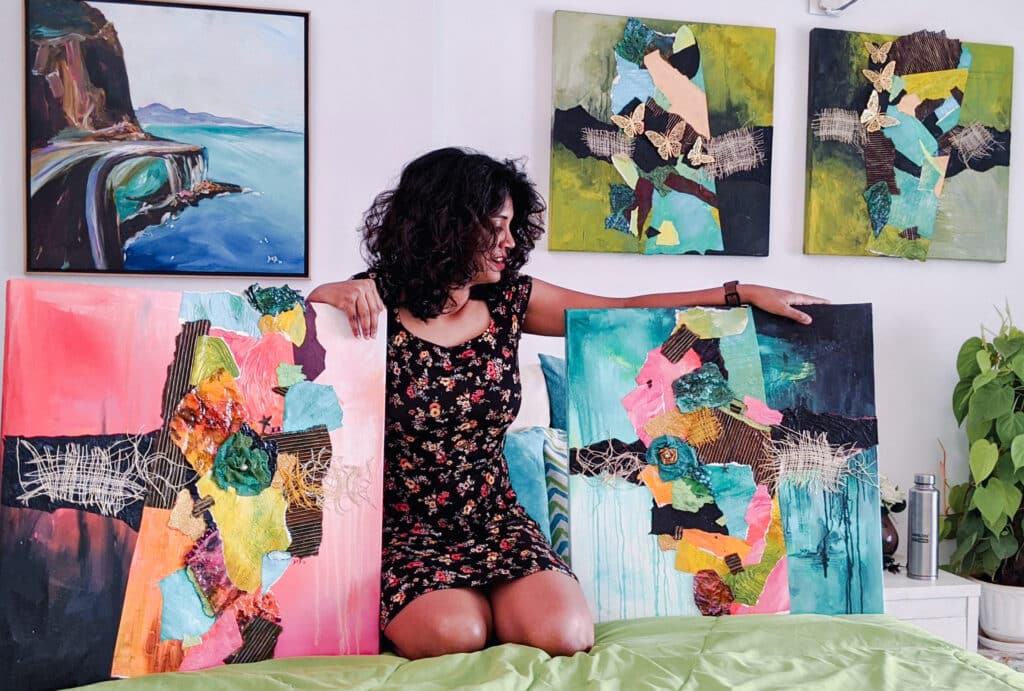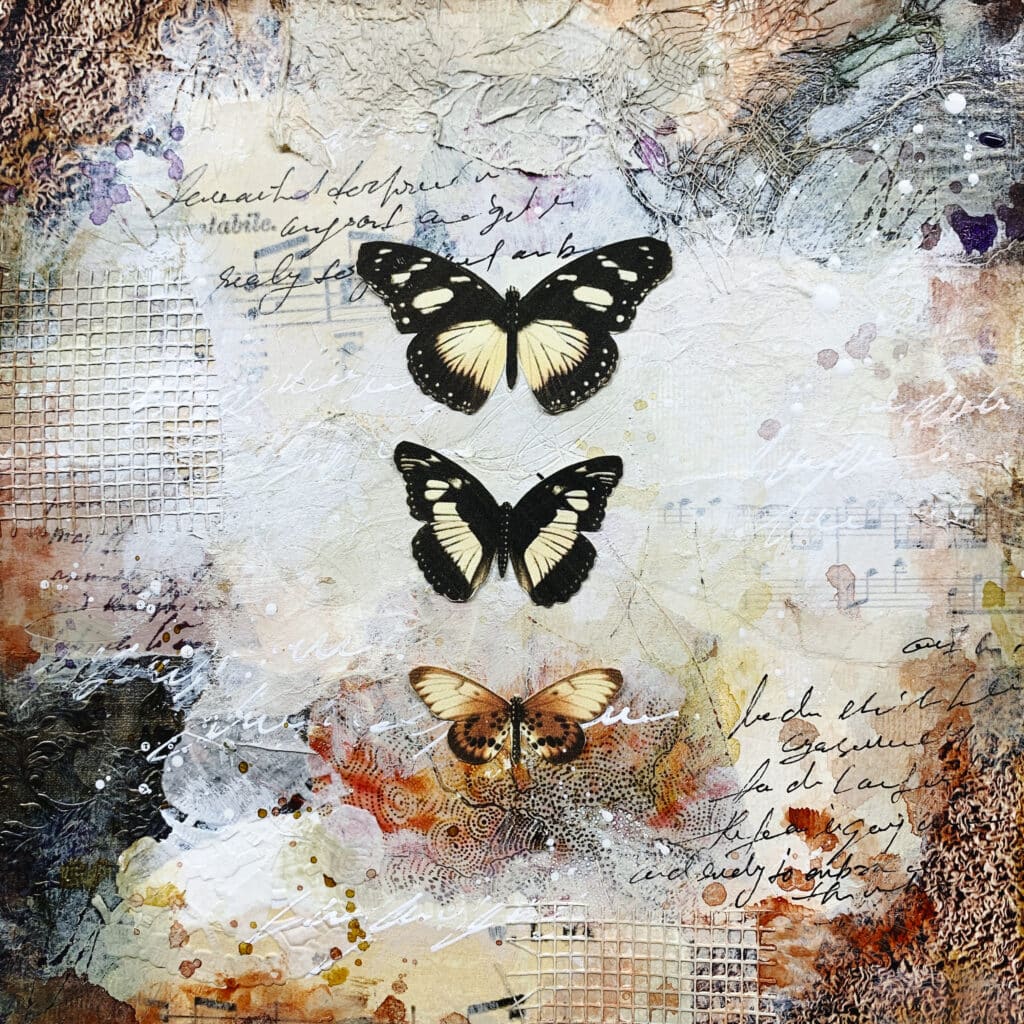Artistic self-doubt, a common companion on the creative journey. Many artists, whether seasoned professionals or aspiring beginners, often find themselves questioning the quality of their own work. But is it normal to think my art is bad?
In this article, we will explore the common experiences of artists who grapple with self-doubt, the factors that contribute to these feelings, and how to navigate them in a healthy and constructive way.
Understanding Artistic Self-Doubt
Artistic self-doubt is a complex emotional experience that artists of all backgrounds can encounter. It is a feeling of uncertainty or dissatisfaction with one’s artistic abilities or creations.
Even the most accomplished artists have moments where they question their work.
The creative process inherently involves vulnerability and self-expression, making it susceptible to self-doubt.
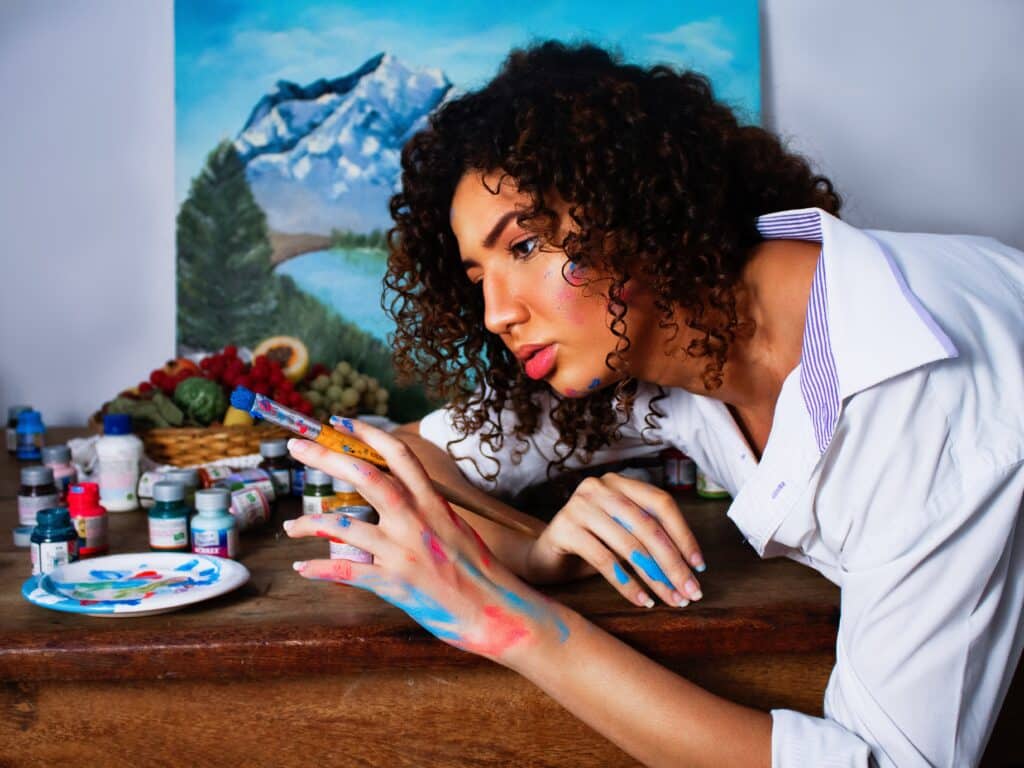
Factors Contributing to Feeling Your Art Is Bad
1. High Standards
Artists often have a clear vision of what they want their art to look like. When their skills or the final result fall short of that vision, doubts may arise.
Having high standards is not necessarily a negative trait; it can motivate artists to continually improve.
2. Comparison with Others
The temptation to compare oneself to other artists is common.
Artists may find themselves captivated by the skill, technique, or style of others they admire.
This comparison can lead to feelings of inadequacy or the perception that their art is inferior.
3. Subjectivity of Art
Art is subjective, and individual tastes and preferences vary. What one person might consider “bad,” another might find intriguing, thought-provoking, or emotionally stirring.
Recognizing the subjectivity of art can help artists gain perspective and understand that not everyone will resonate with their work.
4. Growth and Learning
As artists progress in their artistic journey, they become more aware of areas where they want to improve.
This heightened self-awareness can lead to critical self-evaluation and the belief that their art is not as good as they desire.
Embracing this process is crucial for growth and development.
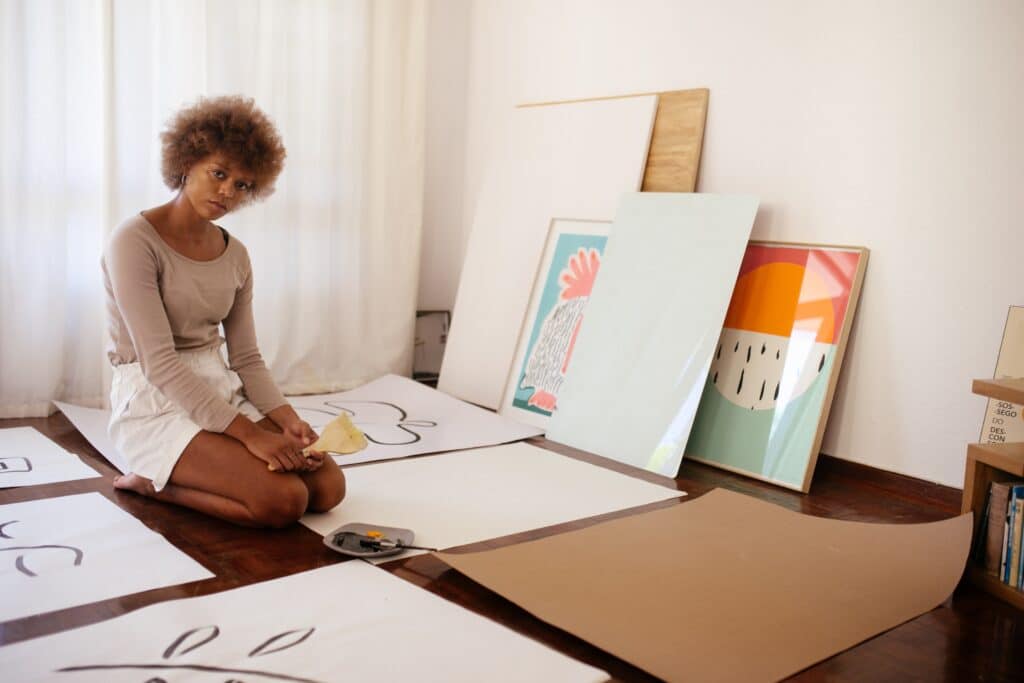
Navigating Artistic Self-Doubt
Recognize it as a Normal Experience: Understanding that artistic self-doubt is a common occurrence can provide solace.
It reassures artists that they are not alone in their struggles and that it is a natural part of the creative process.
1. Embrace the Growth Mindset
Adopting a growth mindset is essential in overcoming self-doubt.
View challenges and setbacks as opportunities for growth and learning rather than indicators of failure.
Embrace the journey of improvement and focus on progress rather than perfection.
2. Seek Constructive Feedback
Receiving feedback from trusted peers, mentors, or art communities can provide valuable insights and help identify areas for improvement.
Constructive criticism can be a catalyst for growth and a chance to view your work from different perspectives.
3. Practice Self-Compassion
Nurture yourself with kindness and cultivate a deep sense of self-compassion.
Acknowledge that art is a journey, and growth takes time.
Celebrate your achievements and milestones along the way, no matter how small they may seem.
4. Establish a Supportive Network
Surround yourself with a supportive network of fellow artists or creative individuals who understand the challenges of the artistic process.
Share experiences, exchange feedback, and provide encouragement to each other.
Pin the below image in your Pinterest board for future reference.
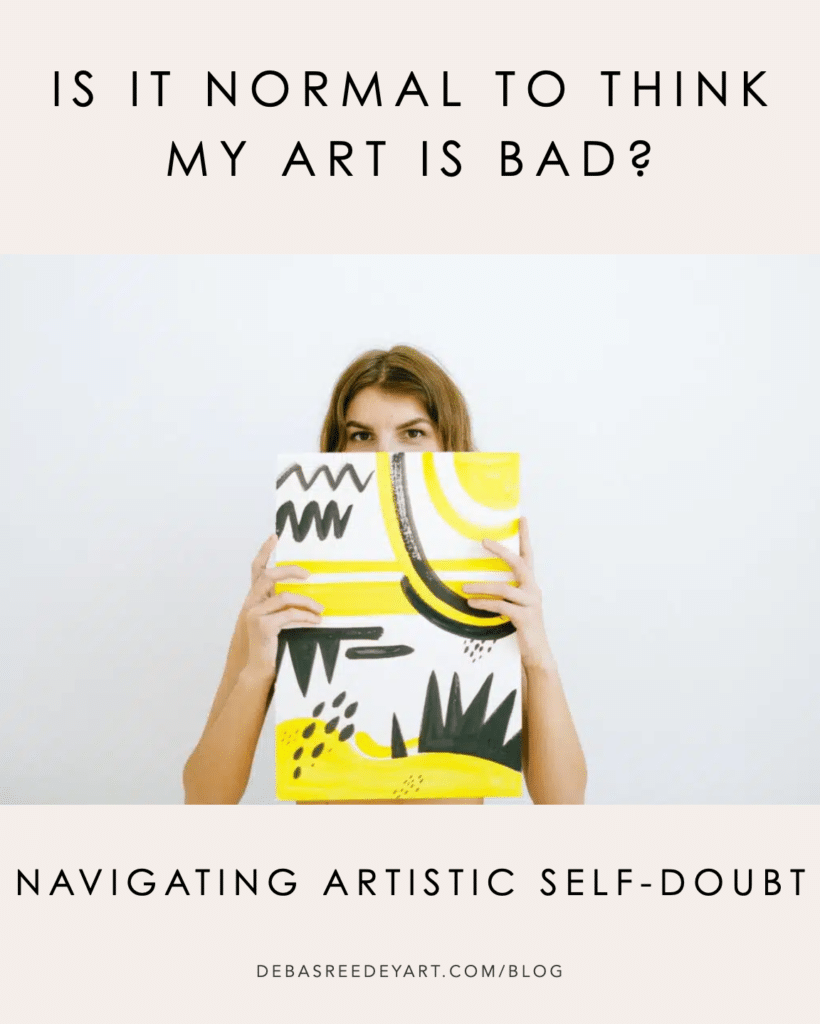
Artistic self-doubt is a normal and shared experience among artists.
It can stem from high standards, comparisons with others, the subjective nature of art, and the pursuit of growth.
However, navigating these feelings requires a mindset shift, embracing the journey, seeking feedback, practicing self-compassion, and building a supportive network.
Remember that your art is a reflection of your unique voice and perspective. Embrace the fluctuations of self-doubt as an opportunity for growth and learning. With time, perseverance, and a belief in your creative abilities, you can overcome self-doubt and continue to create art that is meaningful and authentic to you.
Artistic self-doubt does not define your artistic worth.
So, the next time you question the quality of your art, ask yourself:
- Is it possible that your perceived flaws are simply unique expressions of your artistic voice?
- Could it be that your self-doubt is merely a stepping stone towards growth and artistic evolution?

